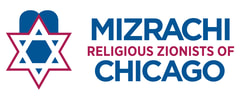RECORDINGS OF PAST PROGRAMS
We live in a privileged era where we have experienced monumental miracles of Biblical proportions. We have seen the establishment of an independent Medinat Yisrael only three years after Auschwitz: the creation of a country of refuge to millions of Jewish exiles from over 100 countries, speaking more than 80 languages, after 2,000 years of wandering; the transformation of Eretz Yisrael from a barren midbar into a flourishing oasis; the revival of Hebrew as an integral part of Jewish society; the developing of a thriving, stable economy emerging from the charity-dependent Old Yishuv; and the remarkable rebuilding of the world of Torah learning and Torah living, so soon after its near annihilation.
Despite these incredible realities, Zionism, in general, and Religious Zionism, in particular, were born in a very complex spiritual, cultural and political context. This complexity causes confusion at times, and for many, fosters doubt as to the appropriate religious perspective with which to view these events.
Adapted from a work by Rabbi Doron Perez, the Director General of World Mizrachi.
The purpose of this lecture series is to add clarity of purpose and mission thereby helping us place Religious Zionism and Medinat Yisrael into their appropriate spiritual and historical context. In so doing, we shall gain an appreciation of the enormity of the debt of gratitude that we owe to HaKadosh Baruch Hu for the times in which we are privileged to live.
Despite these incredible realities, Zionism, in general, and Religious Zionism, in particular, were born in a very complex spiritual, cultural and political context. This complexity causes confusion at times, and for many, fosters doubt as to the appropriate religious perspective with which to view these events.
Adapted from a work by Rabbi Doron Perez, the Director General of World Mizrachi.
The purpose of this lecture series is to add clarity of purpose and mission thereby helping us place Religious Zionism and Medinat Yisrael into their appropriate spiritual and historical context. In so doing, we shall gain an appreciation of the enormity of the debt of gratitude that we owe to HaKadosh Baruch Hu for the times in which we are privileged to live.


